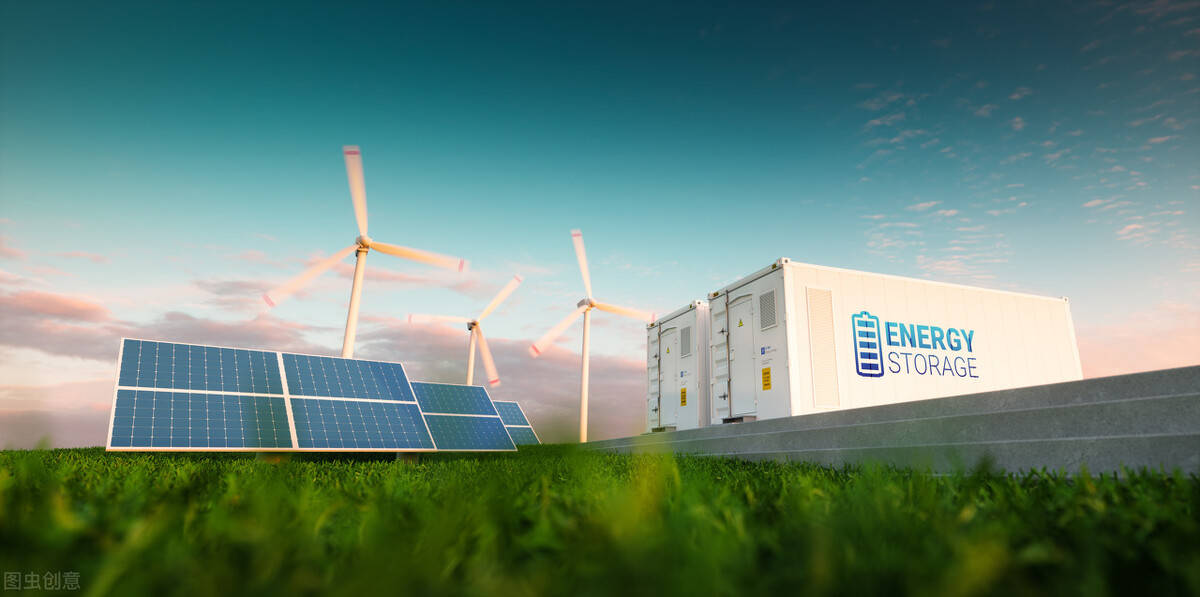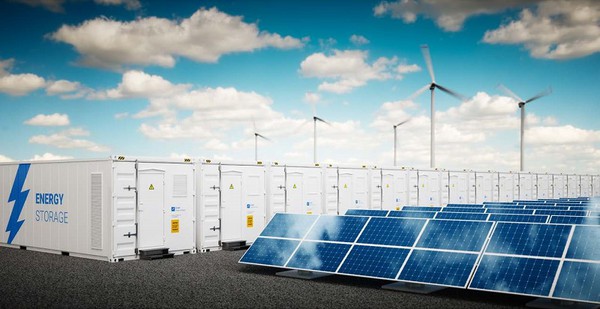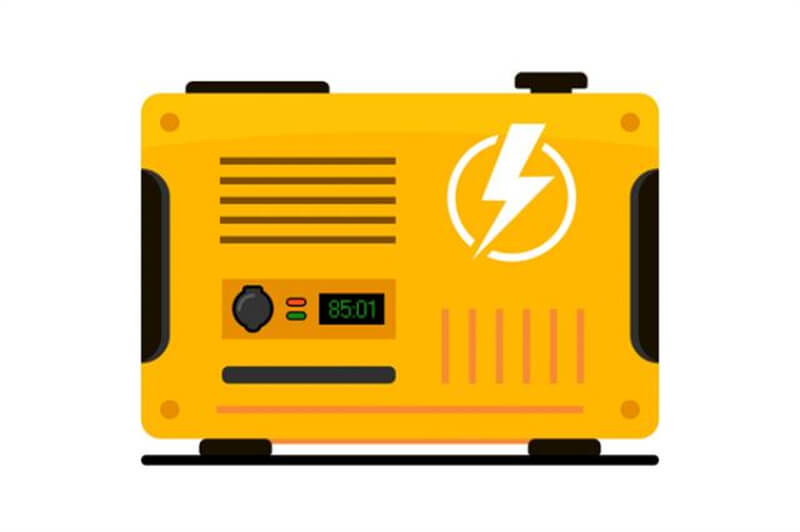Solar panels and other renewable energy sources are seeing tremendous growth in their usage. The cost of solar power systems is rapidly decreasing due to the heavy investment in this field by both people and governments. Solar panels generate electricity during the day, and when combined with batteries, they may store energy for use at night or during a power outage. In contrast, generators have been a common kind of backup power for many years. And which one is ideal for domestic use? In this comprehensive guide, we will compare solar panels with generators and learn more.
Solar panels and their battery backup systems are going to be covered in the introductory section. We shall examine the parts of the system and the advantages and disadvantages of each. We shall then proceed in the same manner with generators.
In order to learn the differences and pick the best option for home usage, we shall compare solar panels and generators later on.

A solar battery backup system collects energy from the sun's rays and stores it in a battery for use at a later time.
In the event of a power loss or to augment grid power during times of high demand, this system can supply backup power.
Solar panels, an inverter, and a battery—one or more—make up the solar battery backup system. Direct current (DC) power is generated by the solar panels from the sun's rays.
This is transformed into AC power by means of an inverter. The household or company can be powered by the AC electricity, and any surplus energy can be stored in the battery.
The battery serves as a backup power source when the amount of sunshine is insufficient or when the demand surpasses the capacity of the solar panels. During times of natural catastrophes or in places with unstable power grids, this can be quite helpful.
The size and capacity of the system determine the cost of the solar battery backup. Solar battery backups were once a niche product, but they're quickly rising in popularity as solar technology gets better and cheaper.
The following are typical components of a solar battery backup system; however, they can differ based on the system and its intended use.
In order to turn sunlight into direct current (DC) electricity, solar panels are the main part of a solar battery backup system.
To prevent the battery from being over- or undercharged, a charge controller controls the current that flows from the solar panels to it.
If the solar panels produce more energy than is needed, the battery can store it for later. Based on the system's requirements, choose the battery type and capacity. Lithium ion batteries are more costly but have a higher energy density; lead acid batteries are popular and inexpensive.
We can power appliances and devices with the alternating current (AC) electricity that the inverter transforms from the direct current (DC) electricity that the solar panels or batteries create.
The solar battery backup system's performance, including energy production and storage, as well as any problems or mistakes detected by the system, is monitored by a system.
When the sun doesn't shine for long stretches or when demand is strong, a backup generator can supplement the electricity from the solar batteries.
In sum, a solar battery backup system offers a sustainable and dependable power source that can mitigate reliance on the power grid and safeguard against blackouts.
l Solar panels, also known as solar battery backup systems, offer a dependable way to generate electricity, particularly in times of crisis, unexpected events, or natural catastrophes. In regions where power system reliability is questionable or where power outages are often, this can be extremely helpful.
l They can offer energy independence to homes and businesses while also reducing reliance on the electrical grid.
l Energy expenses can be significantly reduced and substantial savings can be achieved with the help of a solar battery backup system in the long run. This is because using less expensive fossil fuels is possible thanks to the system's ability to produce and store energy from renewable sources.
l In order to lessen the negative effects of climate change and contribute to sustainability, solar panels can lessen the production of carbon emissions.
l You can anticipate solar panels to last for a considerable amount of time due to their durability. Your solar panels will continue to operate at 80% capacity for the duration of the warranty, which is typically 20-25 years, according to most manufacturers.
l Solar panels can withstand severe weather without deteriorating. Due to their sturdy construction, solar panels are typically able to endure hurricane-force gusts of up to 140 mph. Temperatures as high as 149 degrees Fahrenheit are no match for them. Your panels are also designed to detect when the power goes out and automatically switch to your backup generator.
l Due to their high initial cost, solar panels (also known as solar battery backup systems) could be out of reach for certain households or companies.
l Backup systems that rely on solar power might not be able to handle periods of heavy demand or prolonged durations of power outage due to their low capacity.
l To make sure they work well and efficiently, solar battery backup systems need to be maintained often. As part of this process, you may need to clean the solar panels, check the battery charge, and make sure everything is running well.
l Because solar panels produce electricity from sunlight, they can not work when there isn't enough sunshine, such when it's cloudy or stormy.
A few typical uses for solar battery backup systems are these.
If you want to lessen your reliance on the power grid and have a backup power source in case of crises or power outages, solar panels, also known as solar battery backup systems, are a great option.
Businesses can benefit from these systems in a number of ways, including lower energy bills, more sustainability, and a consistent supply of electricity even during times of high demand or blackouts.
Solar battery backup systems offer a dependable and environmentally friendly way to power off-grid places like cabins, campgrounds, or even whole villages.

In the event of a power loss or when the main power source is inaccessible, a generator backup might kick in to keep the lights on. Portable or permanently installed, the generator is often powered by diesel, propane, or natural gas.
Homes, companies, hospitals, and other important buildings often use backup generators to ensure consistent and dependable power.
It is common practice to install them in conjunction with a main power source, such the electrical grid, so that they can turn on automatically in the event of a failure or disruption to the main power supply.
A generator, transfer switch, and fuel source are the usual components of a generator backup. Connected to the electrical system, the transfer switch automatically switches power sources to the generator in the event that the primary power source fails. The energy required to operate the generator is supplied by the fuel supply.
Although they do have their limitations, generators are a dependable backup power source. They are costly to run, especially when used for long periods of time, noisy, and require frequent maintenance. They also release exhaust fumes.
Furthermore, they are dependent on a limited supply of fuel, which might be unavailable in the event of a protracted blackout or other natural catastrophe.
The ability to transport and utilize a generator in various settings is what defines a portable generator. They are available in various sizes and power outputs, and they are usually powered by gas or propane.
Portable generators are common in many settings, including residences, small companies, camping, outdoor activities, and construction sites, where they serve as backup power sources in the event of power outages. They are also prevalent in places where power outages happen often or where the grid is not reliable.
There is a wide range of sizes available for portable generators, from compact models that are easy to carry about to larger ones that can power numerous appliances and electronics.
They usually come with an engine, a gasoline tank, an alternator, and outlets to plug in various appliances and gadgets.

This is a list of what is needed for a generator backup system.
The backup system revolves around the generator. Mechanical energy is transformed into electrical energy by this process. Depending on the setup, the generator can run on diesel, propane, or even natural gas.
When the main power source goes out, a transfer switch instantly connects the generator to the electrical system and changes the power source.
When the main power source goes out, the transfer switch makes sure the backup generator can safely hook up to the home's electrical system and keep the lights on.
Because they are powered by internal combustion engines, generators require fuel to operate. Various generators use different fuel sources, such as diesel, propane, or natural gas.
The generator's operating gasses are removed by the exhaust system. The accumulation of dangerous gasses in the building can be prevented if the exhaust system is installed appropriately and operates as intended.
The backup generator system is controlled via a user-friendly control panel. The user is able to track the system's progress and make any adjustments.
When the main power source goes down or isn't available, a generator backup system's parts come together to give a steady supply of backup power. The user's requirements and the system's size will dictate the precise parts employed.
There are lots of benefits and drawbacks to having a generator backup system. Generator backup systems include the following benefits and drawbacks.
l In times of emergency or power outage, generator systems can be a dependable backup power source. In houses, stores, offices, etc., they can maintain the operation of crucial appliances and machinery.
l Those things may get going in a matter of seconds, giving power just when it's needed the most.
l Generators have numerous potential uses, such as in households, companies, outdoor activities, healthcare facilities, and emergency services, among others.
l Furthermore, depending on your unique demands, you have the option to personalize generator systems in terms of size and power output.
l Compared to installing solar panels, building a generator is far more cost-effective.
l The procurement and installation of generator backup systems can be costly, particularly for bigger applications or those that necessitate adaptations.
l To keep them running smoothly and safely, regular maintenance is required, which includes changing the oil and replacing the filters. This may increase the total cost of the system over time.
l In the event of long-term power outages or natural catastrophes, the limited fuel supply that generators depend on might not be accessible. There may be a reduction in the amount of time the backup generator can run due to this.
l When used in confined places or regions with inadequate ventilation, the exhaust fumes and noise produced by any generator backup system pose a health risk. Using generators inside or in places with inadequate ventilation is not something we advise.
When you need additional power in the event of an emergency or blackout, a generator backup system is a great choice. A brief rundown of some typical uses for generator systems is as follows.
Generators are most commonly used as a backup power source for houses and companies. During power outages, homeowners can still use their important appliances and systems thanks to generator backup systems.
Uninterruptible power is essential for the operation of important equipment in many enterprises, including hospitals, data centers, and manufacturing plants. In the case of a power loss, a generator backup system can supply steady backup electricity.
Portable power sources are essential for operating power tools, lights, and other equipment on construction sites. A dependable power supply for these uses can be provided by generator backup systems.
Camping and trips to outlying locations are made possible by the built-in generators of many RVs and other types of mobile houses.
Temporary power sources are commonly needed to power various equipment at outdoor events and festivals, including lighting and music systems. These uses can benefit from the portable and dependable power that generator backup systems offer.
If you need electricity during an emergency or blackout, you have two options: a generator or solar battery backup (Solar Panels). Some important distinctions between the two are as follows:
While solar panels charge batteries using energy from the sun, backup generator systems use fuels like diesel, propane, or natural gas to provide electricity.
Backup systems that rely on solar batteries are silent and produce no pollution, in contrast to generators, which can be dangerous in confined spaces or places with inadequate ventilation due to the exhaust fumes they release.
When compared to generator backup systems, which have frequent maintenance like oil changes and filter replacements, solar battery backup systems are far less maintenance intensive.
When there is a long stretch of overcast weather or other forms of cloud cover, solar battery backup systems will not be able to charge the batteries.
Assuming there is fuel, generator backup systems can run continuously.
The capacity and duration of power supply from solar battery backup systems are both constrained by the size of the battery bank and the amount of electricity consumed.
So long as fuel is accessible, generator backup systems can provide electricity for a long time.
Even though generator backup systems are cheaper to set up, the gasoline they use can add up quickly, particularly during longer power outages.
The initial investment in a solar battery backup system is often higher than that of a generator backup system, but the operating expenses are cheaper due to the absence of fuel.
See how solar battery backup stacks up against generator backup in this handy table.
| Parameter | Solar Panels (Solar Battery Backup) | Generator Backup System |
| Source of Energy | Solar energy. Batteries store this energy | Internal combustion engine that runs on gasoline, propane, diesel, or natural gas |
| Power Capacity | Limited. Can provide power for a limited time (as long as the batteries have juice or the sun is up) | High. Can supply power as long as there is a continuous supply of fuel |
| Noise and Emissions | Quiet, no harmful emissions | Can be noisy and emit harmful emissions |
| Maintenance | Minimal maintenance required. Batteries degrade over time | Regular maintenance required, including oil changes and filter replacements |
| Dependability | Rely on availability of sunlight, limited capacity | Can run continuously as long as there is fuel available |
| Cost | More expensive to install, but lower ongoing costs | Less expensive to install, but higher ongoing fuel costs |
Your individual requirements and situation should guide your choice between a solar battery backup and a generator backup.
Before an outage happens, figure exactly how much power you'll need and for how long. For shorter power outages and lesser power needs, solar battery backup systems are typically a good fit.
Longer outages and greater power demands are best handled by generator backup systems.
The installation cost of a solar battery backup system is higher than that of a generator backup system. Their lack of a fuel requirement, however, results in reduced recurring expenditures.
Even though generator backup systems are cheaper to set up, the gasoline they use can add up quickly, particularly during longer power outages.
Solar battery backup systems are preferable if you value silence and cleanliness above all else because they do not release any pollutants into the atmosphere.
A generator backup system, which can supply power continuously as long as fuel is available, may be a preferable option if you reside in a region with frequent power outages.
Because they depend on sunshine, solar battery backup solutions aren't always dependable.
Solar panels are low-maintenance; all they need is an occasional wipe down. However, backup generator systems necessitate routine servicing, such as changing the oil and replacing the filters.
Ultimately, the user's and application's unique requirements will determine the best option between solar panels and generator backup solutions.
While solar battery backup systems are less expensive and better for the environment in the long run, they might not be able to keep up with demand during long power outages.
Generator backup systems are less expensive and more reliable, but they make noise, release pollutants, and need fuel and maintenance frequently.
To ensure consistent power during blackouts, you might also think about installing a hybrid system that integrates solar panels with a generator backup.
Solar panels, batteries, and a few key technologies work together to transform solar energy into usable form, which can then be stored in the batteries or used directly.
In contrast, a generator can generate power by burning fuel such as gasoline, diesel, propane, or even natural gas.
Here we compared solar panels with generators. Hopefully, after reading this, you will have a better grasp of the fundamentals of both systems and be able to make an informed purchase.
Use the space below to tell us what you think we omitted or what you would like us to include. Everyone who reads it, not just us, will benefit from it.

扫码关注
We use cookies to understand how our audience uses our site.
Renon Power websites use cookies to deliver and improve the website experience. See our cookie policy for further details on how we use cookies. Privacy Policy